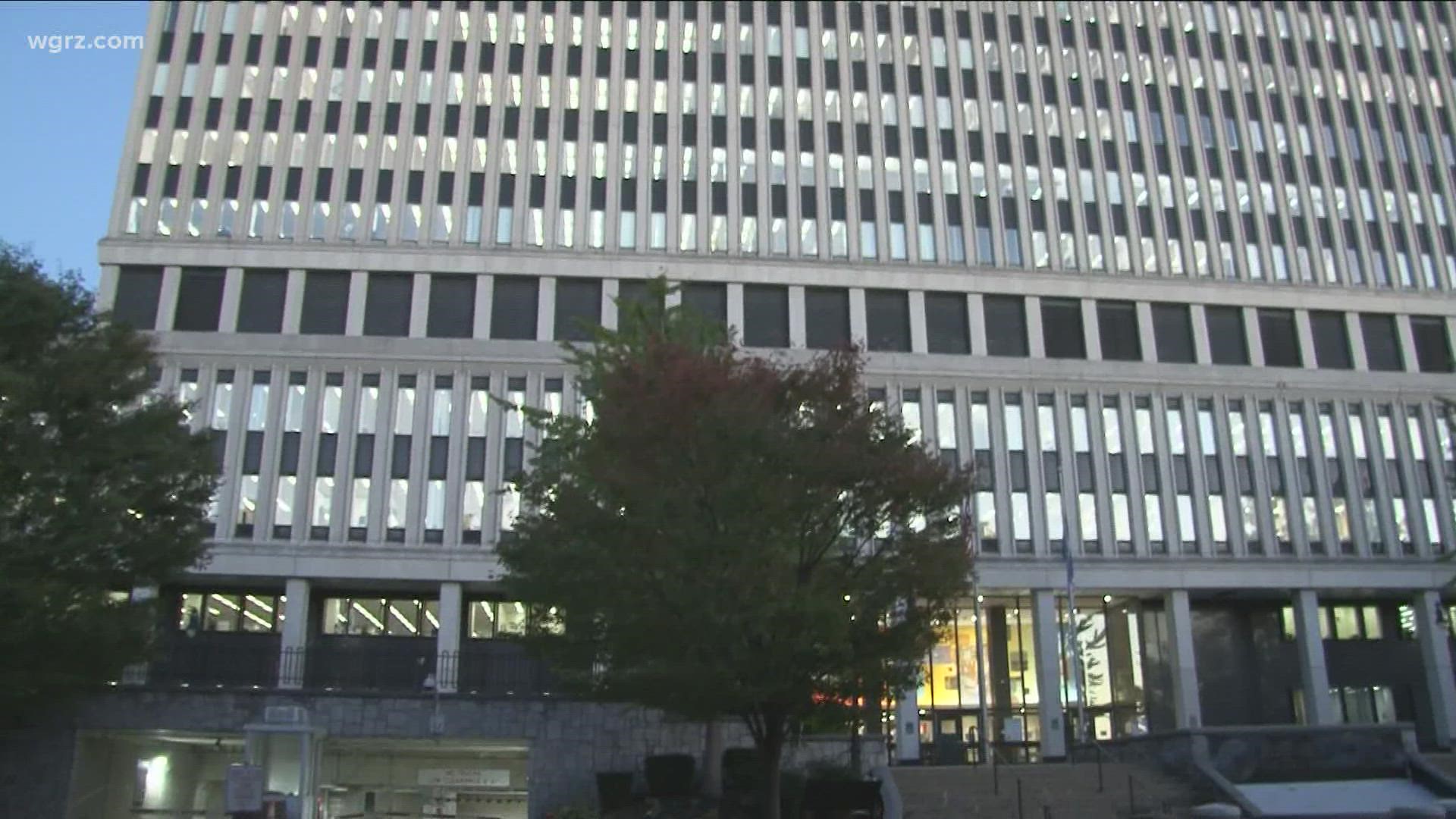BUFFALO, N.Y. — Someone using fake email addresses and inside information was able to fraudulently get more than $100,000 in taxpayer money sent to a bank account in Texas by posing as a local construction company that was owed money by Erie County.
According to a letter from Erie County Attorney Michael Siragusa as well as interviews with other key players, the Comptroller's Office paid $108,014.99 to a "fictitious entity," although Comptroller Stefan Mychajliw disputes that his office was responsible for performing due diligence before sending out the payment.
Mark Cerrone, Inc. was owed the six-figure payout for doing work at the Rath Building in Downtown Buffalo.
On Aug. 2, someone emailed the county claiming to be the construction company. The messages asked the county to make the payment to a different bank. Someone -- though it's not clear who -- did not catch that the emails were from fraudulent and misspelled @markecrrone.com email addresses rather than @markcerrone.com, which is the company's actual website.
Also, nobody verified the banking information before sending the cash. There are conflicting stories on who failed to make sure the payment was going to the actual vendor.
George Lodick, director of operations from Mark Cerrone, Inc., told 2 On Your Side his company recently reached out to the county asking about the payment. It was at that point the illegal scheme became clear.
"We will provide whatever information we can to be helpful in a criminal investigation," Lodick said, adding that his company has also been a frequent target of scammers. "We hope the people get caught."
Frank LoTempio III, a local attorney and legal analyst, said the criminal or criminals could face some serious jail time if caught.
"On the state level, you're dealing with grand larceny, which is a class "D" felony," LoTempio said. "But on the federal level, you're dealing with something very serious... you're talking about wire transfer and wire fraud felonies on the federal level. That is much, much bigger than the state level."
LoTempio predicted that while the county attorney's letter -- that amounted to a criminal referral -- went to Erie County District Attorney John Flynn, federal authorities may get involved due to the stiffer penalties and the investigative resources of the FBI and other agencies.
In his letter to the D.A., County Attorney Siragusa said, "there clearly is criminal activity that has occurred in this case involving an individual or individuals who knowingly defrauded Erie County. We are ready to work with you to pursue recovery of these funds and hold the perpetrators of this fraud accountable."
2 On Your Side spoke to Erie County Executive Mark Poloncarz to hear what he has to say. This is what he said:
“As the former Comptroller, I know there should be protocols in place to ensure that this doesn’t happen. You just don't get an email and change banking instructions based on an email. You confirm it, you call the vendor to confirm that they have changed their banking instructions. And we also have an online cyber security training that every county employee has to take, and this is one of those things that's actually covered by the online training. I took my online training for 2021 in August, and I remember it 'cause it wasn't that long ago and you have to do it annually. So it is really disappointing. I’m very glad that the County Attorney has turned this information over to the District Attorney to begin potential prosecution. What I'm fearful of is the actual scammer probably isn’t even in the United States and so that money may be gone forever. While we do have insurance to help cover this, I don't know if the insurance will cover the whole thing and we should never even be thinking about insurance 'cause this should never happen. This is something that just should have never happened and I'm hopeful that district attorney will be able to find the perpetrators but if not, if nothing happens we’re out $108,000.”
2 On Your Side will follow up on this story to determine what part of county government -- whether the comptroller or an executive agency -- failed to have policies in place to prevent such a scam.
Comptroller Mychajliw said the county does have insurance to cover the loss.

